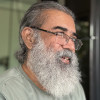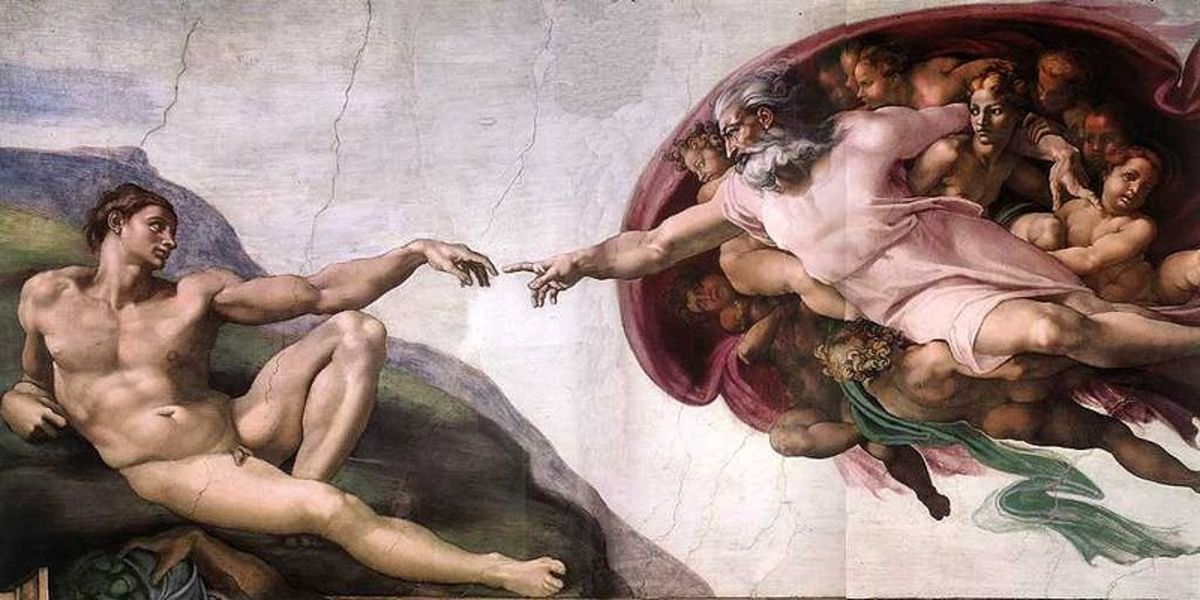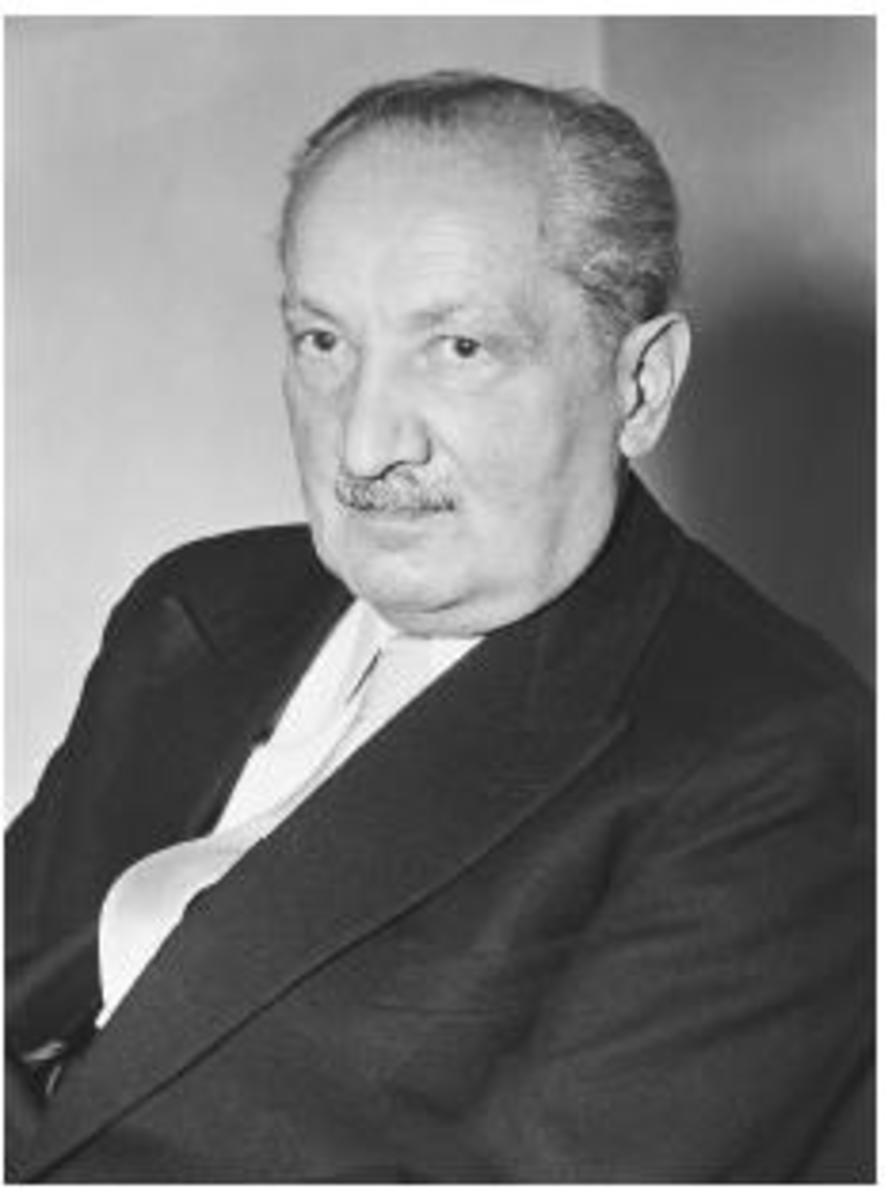Of Pebbles, Politics, Mind, and Matter: Chapter 9

The story so far:
The death of his trusted friend in the search-and-rescue mission organized by them to free his son Avyay from the clutches of kidnappers, leaves Charuchandra forlorn and drained, causing him to quit active politics. This decision on his part initiates other long term-consequences - both perilous and pleasing. Read on to know what they are and how Charuchandra perambulates this dichotomous emotional terrain.
If you wish to revisit the first chapter at this point, please click on the following link:
If you wish to revisit the second chapter at this point, please click on the following link:
If you wish to revisit the third chapter at this point, please click on the following link:
If you wish to revisit the fourth chapter at this point, please click on the following link:
If you wish to revisit the fifth chapter at this point, please click on the following link:
If you wish to revisit the sixth chapter at this point, please click on the following link:
If you wish to revisit the seventh chapter at this point, please click on the following link:
If you wish to revisit the eighth chapter at this point, please click on the following link:
If not, please scroll down to read the ninth chapter titled "Made-to-order conscience".
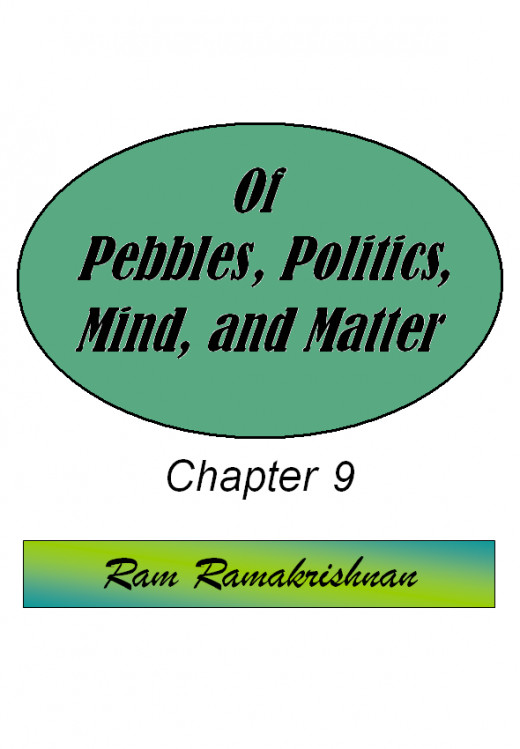
Chapter 9: Made-to-order Conscience

The media hailed Charuchandra Chimalgi as the pioneer in promoting a new brand of active, effective, and responsive politics. People eulogized him. Many male children born for the next few months were named after him. Not a day passed without his picture adorning the page of every newspaper.
But personally, Charuchandra was devastated. It was only Ranga's enduring absence that underscored the depth of his bond with the martyred man. While people extolled him, he bestowed the entire credit of the success of the operation on Jerry Ranga, which only further added to Charu's charisma. Within six months of the incident, the education minister had resigned, citing inability to discharge his duties effectively because of his sustained and deep anguish at the loss of his dear friend. He had sent his letter of resignation the day after the incident itself, but the party - though accepting it in principle - asked him to remain as a minister, until a cabinet reshuffle that considered and took into account the multifarious political pulls and individual aspirations, could be effected.
At the end of the term of the legislative assembly preceding the next general election, Charuchandra declared his intention not to contest or take part in any active campaigning. He wanted to completely disassociate himself from politics, but the party urged him to reconsider his stand. They made him the party ideologue. That the indomitable Charuchandra was a member of a party was certain to make it appear hallowed, and his party did not wish to lose that advantage.
Under the minister's orders, all the rescued children had been restored to their respective parents within a week of the successful mission. During the few hours that Avyay spent with the other boys in captivity, he had formed a good rapport with Jado and Lalnithanga. Charuchandra had personally been to see the parents of the two boys who had not the means of educating them and sought their permission to bring them up. The parents, though initially reluctant, acquiesced. Over the next few years, the former education minister transformed into a dedicator educator, helping his son Avyay and the two boys, the responsibility of whose educational upbringing, he had taken upon himself. His time was spent between party work and helping the boys with their schoolwork.
During his reflective moods, he would wonder why the influence of the number six that took him to the brink on the previous occasion, had not effected its customary end-game-largesse as well, as it had on all earlier occasions. He couldn't find a satisfactory explanation. But the largesse did come - unannounced and unsolicited, even if delayed. At the age of fifty, he was made the governor of the state, a largely constitutional position, but way ahead in status, stature, and importance to that of a minister.
* * *
..
Everything about education had changed in the past hundred years - its content, the manner in which it was imparted, the methods of assessing performance, and the way it was used. It must be credited to the ingenuity and adaptability of the human species that its members could cope with such rapid change. Perhaps, other species could have done so too, but had not been confronted with a need for it until now.
The distinctions between science, art, and philosophy had begun to get increasingly blurred. One could explore the science behind a given philosophy or analyze the philosophy behind a particular discipline of science, be awarded a degree in recognition for the effort, and find a job where the analysis could be applied, which would rake in profits for the employer. This was something that was unimaginable a hundred years ago. The swift change and the innumerable opportunities that this phenomenon spawned also brought in its wake issues of ethics, principles, and responsibilities. There was one section of society that abhorred the change, terming it evil, and reluctantly adapting only to the most necessary requirements. There was another that unreservedly embraced it and strove to make the changes go even faster, declaring that humans had at last found the means to break out of the barrier imposed upon them by nature and evolution, and were on the verge of stepping into uncharted and exciting frontiers. They considered the outlook of the first described section as an impediment to progress, comparing the members of this section to dim-witted trolls who could not appreciate the nuances of advancement. Both were essentially romantic idealists.
The vast majority of society formed the more practical section that gingerly assessed the products of the change as they came along and assimilated them into their daily mode of living. To keep pace with progress and change, a host of new words came into circulation and became common parlance. Though being derivatives of those that already existed and being traceable to the original roots of the concerned language, the new words set the tone for a new perspective, a fresh outlook, and a stimulating attitude towards life and existence to most humans.
The boys - Avyay, Jado, and Lalnithanga - now strapping young men had blossomed into budding scholars and researchers, lovingly and responsibly guided by Charuchandra. All three had majored in the subjects of biomechanics, artificial intelligence, and robotics. The advantage of being related to a man of prominence and power provided them with the means of pursuing their fields of study in the best possible environment.
The broad division of societal attitudes towards change was reflected in the mind-sets of the people of this household also. While Snigdha symbolized the first set, the three young men represented the second, and Charuchandra epitomized the third.
* * *
..
"What does the word 'Trans-human' exactly signify? I hear you boys discussing it quite often," asked Snigdha at the dinner table one day.
"We humans are fast evolving, Mamma, in the process of becoming new beings with enhanced characteristics and capabilities than what humans have had. The evolved beings that would emerge out of the human species will be trans-humans - short for transitory humans, the evolution initiated by artificial augmentation of the physical and mental capabilities of humans. Perhaps, the next generation, the one after us, can call itself proto-trans-human, or may be we ourselves are that, because we can visualize what it is to be a trans-human and then a post-human. Envisioning something is the first step towards its attainment," replied Avyay.
Snigdha could see the picture of a younger Charuchandra in him, in his manner of speech, and his analytical approach.
"Isn't that tinkering with nature?" asked Snigdha. Her revulsion to the idea was clearly discernible from the tenor of her voice.
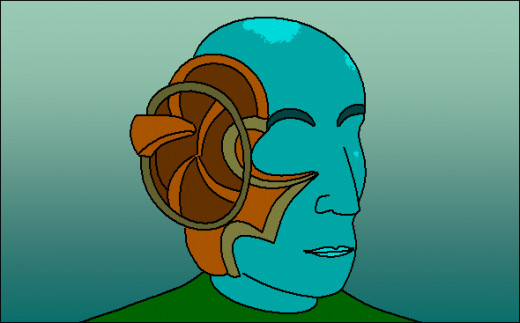
"I have always been telling you that humans are not removed or different from nature. They are part of it. And this evolution, if and when it were to happen, would also be natural," said Charuchandra, seated at the head of the table. He always enjoyed these dinner-time discussions with his son and foster-sons. Though the other two boys visited their respective parents occasionally, most of their time was spent with the Chimalgis, and the two had taken to addressing the elder couple as "mamma" and "papa."
"It need not be true, just because you say so," argued his wife, as she did every time this topic had come up for discussion in the past. Though she concurred with most of her husband's ideas, this was one of the few where there could never be an agreement. "God created human's for a purpose. What right do we have to set about messing with his plan?"
"Mamma, God made humans precisely for that purpose - to mess with his plans and evolve into trans-humans and then onto post-humans," quipped Jado.
"It isn't right and decent to speak of such things lightly," chided Snigdha.
"It is a sign that we - papa included - are indeed proto-trans-humans, Mamma. According to one theorist, signs of trans-humans include prostheses, reconstructive surgery, intensive use of telecommunications, a cosmopolitan outlook and a globetrotting lifestyle, androgyny, mediated reproduction, absence of religious beliefs, and a rejection of traditional family values. We haven't experimented with the first two yet ourselves, but see it being widely applied. Except for the item concerning reproduction, which is however, already in prevalence and may be applicable to us in the near future, we posses the rest of the enumerated traits," said Lalnithanga, joining the debate, which was less one, and more a leg-pulling spree directed at Snigdha.
"What is androgyny?" asked Snigdha. Despite being critical of the concept, she was avidly following the explanations provided by the young men.
"Broadly, it is the effacement of the distinctive roles played by men and women in traditional society. It is a situation where gender and societal responsibilities are completely de-linked," explained Charuchandra.
"How can that be?" exclaimed Snigdha. "Can a male ever have a baby?"
"It isn't that, Mamma. With facilities of mediated reproduction, it is envisaged that a woman will no longer be required to carry a baby within herself. An artificial womb will do the job, with the couple just contributing their genes, if they fancy a child with a combination of their characteristics, or only one parent doing so if a clone is desired. There could also be made-to-order babies where a genome could be altered to produce preferred characteristics," said Avyay.
"It is a travesty of the truth and mockery of the Maker, even to hear about such things. The world is surely about to end," remarked an outraged Snigdha.
"Yes, Mamma, the world as we have known it for so long and have read about in history books, is surely to end soon. In its place will be a brand new world, without all those meaningless and redundant ideas that plague us now," observed Jado, who was the most romantic of the three young men.
"No world will be without its problems, Jado," cautioned Charuchandra. "As you say, many of the redundant idea would wither away. But in their place would emerge newer ones that would have to be overcome. Existence is a never-ending process of problems and solutions."
"I hope to be dead by the time that kind of society comes to be," announced Snigdha vehemently.
"The boys are being too optimistic, dear, about the advent of trans-human civilization. It will certainly come one day, but in my opinion, much later than what they envisage. We will all be dead and gone by then," assured Charuchandra.
"Would your gender-specific decision-making models designed for individuals of the present-day society be valid for members of such a civilization?" asked Snigdha.
"I guess not. They would need to be tweaked to account for the changed perspectives," agreed Charuchandra. "But I believe that the two underlying principles of propagation and preservation would remain unchanged as long as the concept of evolution is valid. Something evolves as long as it perceives a goal that remains unattained, and attainment will be feasible only if whatever that is there, is preserved, and in the event of possible destruction, is propagated, to continue that quest."
"Papa, one of my objectives is to test your model on an android. With a synthetic memory, it would be possible to follow every chain of thought, record them, and play them back any number of times for analysis. It would also be possible to repeat an experiment several times, seeding the unconscious section of its brain differently at each instance," said Avyay.
"You don't really require an android for that, do you?" asked the happy father. It was always a nice feeling to have one's children appreciate one's work, just as it was special for children to get their parents to acclaim their efforts.
"It will only make it so much more human-like. The external stimuli could be gathered by instruments corresponding to the human sensory organs and the output too could be delivered mimicking human reactions," contended Jado, equally enthusiastic about the idea.
"Is not equating an android to a human, going a bit too far?" asked Snigdha. "It does not have life."
"By the minimal definition that we assign to the notion of an entity being alive, which states that the entity in question should be able to recognize its environment on its own and be capable of responding to it in a manner that preserves itself from harm, an android certainly will be recognized as being alive. It is not a question of going far or near, but one of applying a definition on an entity to see whether or not it conforms to it. There are no sentiments attached here," said Charuchandra.
"Isn't it strange, Papa, that we are able to investigate and understand the functioning of most things around us, but when it comes to the question of its origin, we always draw a blank?"
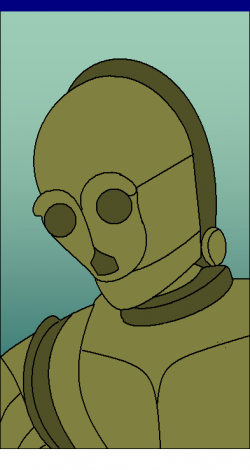
"Yes, son. Consider the much talked about string theory, which is seen as the ideal candidate for being the 'Theory Of Everything.' It is said to be mathematically consistent and can - in terms of what it considers to be the basic unit of everything - explain this basic unit's manifestation as matter, light, or gravity. Here too, the set of mathematical equations can describe how this transformation occurs. But we have no means of knowing what spurs this transformation in the first place, and why. We have nothing to speculate on what was before this spark that set the ball rolling, nor where and how the string came to be."
"The answer to all these unanswerable questions can only be one thing - God," declared Snigdha, triumphantly. She would be depressed every time during a discussion, when her husband, son, or foster-sons, would come up with some reason and logic to explain an idea that she would otherwise attribute to God. It was good to see them groping for an answer occasionally. During her youth, she had been more open to the exercise of questioning religious practices and probing the notion of divinity. But middle age seemed to have hardened her stance in favor of these ideas as advocated by proponents of the times.
"Perhaps, Mamma. But that too is only speculation and also a matter of personal expediency. You should have no objection if others wish to probe these questions further to seek answers that provide more clarity, at least from their perspective," said Avyay, defending his father.
"I would go to the extent of saying that even the string theory as well as all the other competing theories that aspire to wear the crown, should be bunched together - along with the concept of God - in the 'to-be-suspected-until-proven' category. In fact, according to a set of mathematical theorems, it will be impossible to develop a 'theory of everything.' In the context of our present debate, we can extend it to say that God will eternally remain unknown and indescribable," opined Charuchandra.
"What is this set of mathematical theorems?" asked Snigdha, her inquisitive and inquiring self of old, resurfacing briefly.
"The components of this set are called Gödel's incompleteness theorems. The first of these states that, 'Any effectively generated theory capable of expressing elementary arithmetic cannot be both consistent and complete.' The second states that, 'If an axiomatic system can be proven to be consistent and complete from within itself, then it is inconsistent.' The theorems have been shown to have limitations under certain conditions, but they are seen to hold for all formal theories that satisfy the necessary hypotheses, the many 'theories of everything' being among them," explained Charuchandra.
"In that case, Papa, even speaking of God's attributes is blasphemy. All theories that we come up with to explain what that entity is - if at all it is one - can only be incomplete. Then with what authority do people say that God is kind or cruel, fair or biased, lenient or judgmental? How can they ever know what God is?" asked Avyay.
"From such a perspective, all religions are blasphemous, son. Science is a religion too, and it too is guilty of this crime. But it stands out as the least culpable of them all, as it tends to accept its limitations, inconsistencies, and incompleteness," observed his father.
"Couldn't we change the topic of discussion please?" implored Snigdha, finding the direction that the debate seem to be taking a bit too uncomfortable.
"But, Mamma . . ." began Jado, only to be interrupted by his foster-father.
"Show deference and understanding to your mamma, boys. Let us talk of something else."
"How about getting one of those Japanese robots, Papa?" asked Avyay. "I believe that one of the models available come in two versions. One is for users who want it pre-programmed for a specific purpose. The other more interesting version and obviously much costlier, lets the user experiment with it. We could simulate the thoughts of a trans-human and see what it is to be one."
"Go ahead, boys. If you haven't done so already, survey the market, explore all that is available, select the one that includes the latest developments in the fields of Artificial Intelligence and Robotics and ask my ADC to place an order for it," instructed Charuchandra. Occupying a gubernatorial position had its advantages, but the present incumbent never misused it, which made even a simple request from him to be immediately complied with.
"Thank you, Papa!" cried the three young men in unison.
It had been their yearning for quite some time now, to own an android. But they were terribly expensive and the young men were not ready to settle for any of the cheaper models, which were more playthings than serious stuff to research with. They were, however, reluctant to openly ask Charuchandra to get them one, as he discouraged all extravagant and unnecessary expenditure. The constant talk about the subject had made the older man aware of their longing and he had secretly asked his aides-de-camp to enquire about them and was told that Japan, Korea, and Singapore were the leading players in this field, particularly the first two.
"I would have expected the Americans, the Russians, or one of the West European countries to be in the forefront of robotic research and development. How is it that Japan has beaten them all to it?" asked Snigdha.
"Perhaps, it is the ready acceptance of the Japanese people of robots in their society that has stimulated this surge. Such acceptance can be attributed to the widespread belief in Japanese culture based on the Shinto religious tenets that everything in the material world - animate or inanimate - has a spirit associated with it. They refer to the spirit by the term 'Kami.' When two material entities are seen to interact, it is actually the Kamis possessing them that do so, using the material bodies of the entities they possess as a means for this purpose, according to Shinto thought. For a people steeped in such thought, it is easy to accept robots, androids, and cyborgs in their lives. For minds, which are conditioned to believe that because humans are at the apex of the evolutionary ladder - assuming that the surmise is correct - they alone have the right to rule over everything else, it becomes difficult to accept a situation, where the possibility of a robot, android, or cyborg, usurping that role is very real and fairly high. This is perhaps one of the reasons why the population of robots is highest in Japan. There are certainly other contributing factors, the first among them being the country's aging population and low fertility rates. They are also strongly against people of other ethnicities immigrating to their land. The only option open for them to meet their manpower requirement is robotize all those areas in which it is possible to do so and such areas are slowly expanding to encompass every aspect of society. The same arguments apply to the South Koreans too."
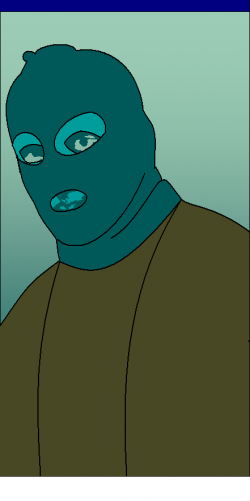
"There you are, Mamma! Shinto religion has the answer to your misgivings about robots and their role in society," exclaimed Lalnithanga.
"That is enough talk of robots and trans-humans for the day. Let us see what the news headlines have to say," remarked Snigdha and switched the television on.
It was a regular routine at their household to watch the news summary at the end of the last hourly bulletin of the day. The engrossing debate at dinner-time had made them lose track of time and they were able to view only the last bit of the report before the conclusion of the newscast. It was that the military intelligence had warned about a group of well-trained and heavily armed terrorists having infiltrated across the border and being untraced after that. The reports also added that communication intercepts indicated that they had been assigned high profile human targets by their handlers. Charuchandra's gaze casually and for no particular reason, looked at the calendar. It was the sixth day of June. He let out an involuntary gasp.
"What is it, Charu?" asked Snigdha, with concern.
"Oh, it was nothing. Tried suppressing a burp, and it endeavored to transform into a cough but ended up as a hybrid," said Charuchandra, quickly averting his gaze away from the calendar and hoping that his statement had been naturally funny to make Snigdha not suspect anything being amiss.
The wife had a long searching look at the husband, before accepting his explanation.
* * *
..
The three young men were busy sifting through all available literature. Their earlier searches had been sporadic and less focused, but now it was with a specific intent and hence more methodical and comprehensive.
"I would prefer a desktop-computer-like machine that simulates a personality. I will be more comfortable dealing with it because I would be sure that it isn't a human," declared Lalnithanga. He was the reclusive kind compared to his more energetic and outgoing foster-brothers.
"You speak like mamma!" exclaimed Jado. "No wonder you are her pet."
"Rather, he being her pet has made him imbibe her qualities," commented Avyay.
"Shut up and don't drag mamma into this," flared up Lalnithanga. "Just state your preferences and we will go by whatever that is affordable and also caters to all our individual predilections."
"Okay, relax. Can't you stand a harmless bit of leg-pulling?" chided Jado, gesturing towards his foster-brother. "Avyay and I would opt for an android. The question to be settled is what kind. For me it would be a protocol android. What is your choice Avyay?"
"A security android. And I hear that the South Koreans make better stuff than the Japanese when it comes to security robots," said Avyay.
We will provide these details to papa's aides-de-camp, see what he comes up with, and then decide," stated Lalnithanga.
The process of acquiring an android was set in motion and the young men began to feel that time was dragging its feet all of a sudden. The wait to hear from the manufacturers seemed endless and unbearable.
* * *
..
The governor had been keenly following reports about the movements of the terrorists who had reportedly sneaked into the country a couple of days ago. Being the supreme commander of the state's police force, he could ask for and obtain the latest classified information on them. Sleuths of counter-terrorism agencies were on their trail, but their quarry seemed to be always a few steps ahead of them. They had however, been able to put together a brief about who these terrorists were, how many were they in number and their avowed objectives.
At breakfast-time a couple of days later, Snigdha who had been observing her husband leaf through the reports on the movements of the terrorists every day, asked him once again, "I can definitely say that something is troubling you, Charu. It started from dinner-time a few days ago. Why don't you tell me what it is?"
Charuchandra stared at the tabletop for a long while, structuring and composing his thoughts, while Snigdha patiently waited for him to confess, which she was sure he would. When he finally looked up into his wife's eyes, she had no misgivings about the authenticity of what he said. His expression reflected his total sincerity.
"Do you remember what the date was that day, Snigdha?" he asked.
"Someday in the first week of June, I don't remember exactly."
"It was the sixth of June - the sixth day of the sixth month."
"Now, you are the one who is succumbing to superstition, while you accuse me of doing so all the time," complained his wife.
"There is a difference, my dear. There is fear associated with superstition and also the urge to counter whatever adverse result that one associates with such phenomena. I am neither afraid of the consequences of what this strange association that the number six has with my life, nor am I going to take any counter measures to stop or alter it, because I know it isn't possible. You have seen yourself, how it has been during earlier occasions."
"But there have also been many occasions where nothing significant has happened."
"Yes, I agree. And during such times, I haven't had any premonitions. Perhaps, happenings that are to affect me notably in some way in the near future sensitize my unconscious self in some manner. It has happened this time and the incident that triggered it was the report that a group of persons had infiltrated across the border."

"Is that why you are being fed with these files every morning whose contents you seem to relish more than the breakfast that I make for you? I bet that you wouldn't know what was served today or on any of the preceding days since the sixth of June," observed Snigdha.
Charu smiled sheepishly. He realized that it was indeed so. He couldn't remember what he had consumed less than an hour ago. "What was it today?" he asked.
"Your favorite; potato stuffed pancakes."
"Oh, really! Why didn't you tell me so when they were served?" asked Charuchandra, with the expression of a child, who feels miserable at having lost out on something delectable.
Snigdha knew that it was not pretended.
"You are neither a child nor a stranger to Indian cuisine to be not able to recognize what is on your plate. The terrorists appear to have had a long-distance effect on you," she remarked and then added, "What do you think makes a terrorist tick, particularly of the variety that is prevalent now? Do you have a decision-making model that mimics the thoughts of a terrorist?"
"Before I answer your questions, I would request you not to use the word 'terrorist' disparagingly. Some of these people are so highly motivated and so unshakably wedded to their ideology, that should they apply their energies to something constructive, they would achieve wonders. It is perhaps, a quirk of fate that they don't. Nevertheless, their sense of commitment and dedication is praiseworthy. Many of us would appear to be lesser beings when compared to them on these counts," said Charu.
"I wonder how the party and the government tolerate a person who has a soft corner for its enemies," Snigdha wondered aloud. "Do your colleagues know your opinion about terrorists?"
"Yes, they do. I do not condone a terrorist act after it is done. Potentially, I too can be incited to commit a murder under exceptional circumstances. Would you call me a murderer even before I indulge in that crime?" asked Charuchandra.
"You always have a counter, ensconced in impregnable logic, to whatever anyone has to say. Can you tell me what exceptional circumstances could there be to make a man kill many others? Even if there are, I am sure they are pretty flimsy ones."
"Let us begin with the question, 'What makes a human to react?'" asked Charuchandra and also provided the answer. "It is to neutralize a perceived non-equilibrium in the system comprising the self and the environment."
"Why do you always have to start everything as if we are in classroom?" demanded Snigdha.
"It eliminates ambiguity and denies all participants in the debate the means of escaping after having made vague and imprecise statements," said her husband pointedly.
"I can understand which participant it is particularly directed at," said Snigdha smiling. "Continue with your classroom lecture."
"The next question that we ask and answer is, 'What makes a human to act?' My answer would be that it is to actualize an ambition, which in the human's perception will provide material or emotional satisfaction to the self. Do you have any differences with my explanations so far?"
"None, until now."
"It is obvious that while reaction has a limited ideology powering it and is more of an essential step, action has a much larger and individualized ideology feeding an ambition, a conducive environment, and the necessary means, readily and simultaneously available at the time of action."
"I know how and where this discussion is headed, Charu. You are going to say that ideology is partly inherent and partly imbibed from the prevailing environment and therefore a terrorist has as much right to his as I have to mine."
"Yes, Snigdha, that is where it is exactly headed. I forgot for a moment that we have been married for twenty-four years and that you are as adept at these deductions as I am. But that is not the final destination of the discussion. It has much farther to go."
"Where else can it go beyond this?"
"Life could be viewed as a continuous interplay of ambitions. Between individuals, the one that is dominant, holds centre stage. In a society, the most powerful collective ambition would hold sway. But the others by no means are inconsequential, and would always be looking for ways to outsmart the one that currently prevails. Despite viewing life from this standpoint, an individual cannot remain neutral, if he or she has to be part of society. It is imperative to declare on which side we are and work for the sustenance and advancement of its ambitions, which includes countering the collective ambitions that oppose the one that we subscribe to. A global perspective on the other hand, helps in the endeavor of making life more pleasurable for everyone, as it helps in devising our countermoves in a manner, which reduces hurtful fallouts from these inevitable confrontations between contrasting ideologies."
"But some ideologies, particularly those that are based on utter disregard for other's viewpoints, can be countered only by brute and merciless force. I would still place a terrorist in such a category," argued Snigdha.
"No ideology is free of lacunae. The one we champion could also be said to have terrorist tendencies, being the cause of countless deaths."
"Are you out of your mind? This is stretching things a bit too far," said Snigdha, truly annoyed.
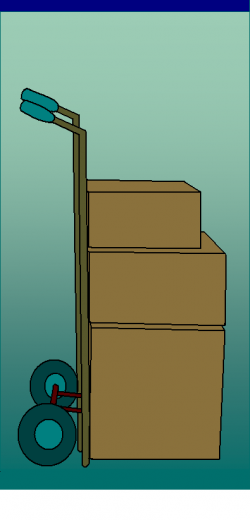
"If an ideology was to be satisfactory, beneficial, and advantageous to all concerned, there wouldn't be any opposition to it at all. Analogically extending Gödel's incompleteness theorems to the realm of ideologies, we can state that no creed can be both consistent and complete, and if it is proven to be consistent based on its own tenets then it surely is inconsistent. It is a moot point whether the theorems can be extended so, but I believe it is valid because of the contradictions that we see in every creed worth a name. If we were to claim that our system of governance is the most appropriate, then there wouldn't be so much of inequity in society, where farmers have to commit suicide unable to bear the burden of debt, or tribals need to be evicted from their ancestral lands and left to fend for themselves. This too is terrorism of a kind and its consequence is the coming into being of terrorist pressure groups of other kinds that strive to address this imbalance. It is inescapable for 'success' to attain its position without trampling upon innumerable 'failures.' By understanding the perspective of 'failures' and genuinely endeavoring to focus on their concerns also, 'success' would make the ordeal of being trampled upon bearable and to an extent, condonable. That, I believe, will be the utopian society, which can come closest to being called 'just,'" said Charuchandra.
Snigdha's brief annoyance appeared to have been smothered by her husband's long winding sermon.
"There is reason in all that you have said. But I still feel that those who incite or indulge in violence should be severely punished on exemplary grounds. The fear of punishment is certainly a deterrence," she persisted.
"For a greatly motivated mind, nothing will be a deterrence, not even death. As I said earlier, three factors go into making a 'terrorist,' as they are inappropriately referred to - a motivation that is more exalted than petty material gain; the means in terms of physical prowess, weapons, and combat training; and the opportunity, which is usually and also unthinkingly, provided on a platter by those whom such people oppose. Devoid of motivation, a person possessing only the other two requirements is only a criminal and needs to be dealt without mercy. But persons with a strong and valid ideology will have to be tackled differently. They will have to be convinced that the cause that provoked them is being addressed sincerely and effectively, or that the path they follow will not lead them to their objective. If this could be done, then I am sure that there will be a change of heart. Rather than thinking in terms of them and us, we will have to do so in terms of all of us."
"Isn't this likely solution utopian too?" asked Snigdha.
"A 'solution' by definition, is an ideal perfection. Hence, all solutions would essentially be utopian. But, as I said, the one that I outlined would be the nearest to being honest, honorable, and fair."
"Your Excellency, there is a delegation of unemployed handloom weavers waiting to meet you," announced the aides-de-camp, which marked the end of the debate, which was anyway in its closing stages.
"I will be with them in a few minutes," replied the governor turning to the man and then patting his wife's hand tenderly, said to her, "This is another group of aggrieved individuals who could be potential 'terrorists,' if the state does not find a reasonable solution to their problems. The advent of power looms have rendered them jobless with no other means of livelihood. There are many such delegations everyday from different strata of society. If you were to see the scale of hardship that our society manages to create for its own people, the acts of terrorists would appear to be antics of kids."
* * *
The android kit from Korea arrived sooner than expected. It was a complete surprise for the three young men, but not so for the governor, for it was he, who unknown to Avyay, Jado, and Lalnithanga, decided on the model and placed the order. It was a security android, which could not only wield a weapon and engage in combat, but also had the capability of learning and following protocols. Further, it could also engage in lofty philosophical discussions based on reason, if seeded appropriately for the purpose. A specimen of the latest range of all-purpose androids, it was the Korean nation's answer to the long-standing claim of the Japanese to be the leaders in android technology. This development vaulted the Koreans to a position much ahead of all their rivals.
The manufacturers offered customers the option of choosing a face, skin color, general personality traits, and name for their android. It was another 'first' in an industry that was expected to top the charts in the coming years.
Charuchandra had sent portraits and profiles of Jerry Ranga along with a description of his general personality. It had been more than a decade since Ranga's tragic death, but Charu's remembrances of his friend were as fresh and as fondness-filled, as they had been those many years ago. He missed Ranga too, as much. The possibility of having a look-and-behave-alike replacement for his long-lost friend was too good an opportunity to let go. Fearing that he may be forced to change his mind to accommodate the young men's preferences, he had quietly gone ahead with his decision, after making certain that the features that his son and foster-sons were looking for were also available in the android.
It was a festive day at the gubernatorial residence when the kit arrived, accompanied by a Korean service engineer, Li Bong Park, who was to assemble the android and conduct a week-long orientation for the android and the members of the family of which he - the android - was also to become a member henceforth. Like the Japanese, the Koreans too believed in the presence of spirits in all material objects.
No one was allowed to see the android being assembled, by the governor's orders, and it was with great fanfare that he introduced the new Jerry Ranga to his family members. He was so lifelike that it took a long while for Snigdha to accept that it was an android and not the real Ranga. The only giveaways initially were the squeaky voice that the new Ranga sported and his frequent bowing. They were set right without much ado by the service engineer, Li Bong Park, and the new avatar of the former don was soon speaking in his characteristic deep bass voice and moving in a manner that only the real Jerry Ranga could.
Charuchandra was ecstatic. But for the presence of Li Bong Park and the members of his staff, he would have hugged android Ranga.
Then began the seven-day familiarization course for the android. He was made to converse with each of the family members to record in his memory the minutest details of their appearance, vocal imprints, biometric parameters, personal history, preferences, and personality traits. This exercise was interspersed with his being taken around the residence, the neighborhood, and then around the city. Charuchandra and Snigdha spent time with the android to tell him more about the personality that he represented and with each passing day, his behavior too began to be much like the late Jerry Ranga.
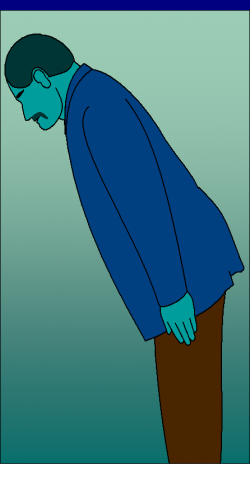
At the end of the seven-day period, the Korean service engineer announced the successful completion of his work and asked the members of the governor's family whether they were satisfied with the product, the service, and the level of acclimatization of the android. They were all seated at the dining table sipping tea. There was overwhelming appreciation for the Korean's work from everyone.
Snigdha, who was very particular about maintaining interpersonal protocols, wanted her boys to call the android 'Uncle Ranga'. The young men refused and android Ranga abetted them.
"We are denizens of the trans-human age, Lady Snigdha. The utility of such etiquettes is long lost. It was required in a society with fissures generated by a range of barriers like ethnicity, language, skin color, facial and body contours, occupations, customs, and religion, to keep the flock together and make both the caller and the called feel that they belonged. It isn't so any more. We have evolved beyond that stage," he opined.
Snigdha looked at her husband crossly. "You said that we would be dead and gone before the advent of the trans-human age and would not have to face its dichotomies. And here is Ranga saying that it is already there. Whom should I believe?"
"I think you should believe your husband, Lady Snigdha," said android Ranga, his fetish for protocol coming to the fore. "You have known him for twenty-four years while I am an acquaintance of but one week."
"Who says so? I have known you too for that many years, ever since I was married to Charu," retorted the woman. She had forgotten for a moment that it was android Ranga and not the real one, who stood before her.
"There can't be a better testimony for the brilliance of what you and your colleagues have created, Li Bong Park. We salute you and are overjoyed to have android Ranga amongst us," remarked Charuchandra.
"Those were very kind words, Your Excellency," said android Ranga, while Li Bong Park bowed and beamed.
"I decree, that from this moment onwards, you are just Ranga to us - the prefix 'android' is demeaning. We," he pointed to his wife and himself, "are Snigdha and Charu to you."
"I am honored, Your Excellency, I mean Charu. It will be my endeavor and pleasure to serve you as a member of your family, until I am vaporized by a laser gun. Any damage to my body short of that will be repairable. My personal belongings contain a spare for almost every part of my physical self, and if I am mobile, I can repair myself. In the event that I am immobilized, then I can instruct one of the young men here to replace the necessary parts to revive me. If the damage is way too severe, you can always call Li Bong Park," announced Jerry Ranga.
The Korean beamed still more and bowed even lower. He had a bit of a language problem, not being very good at spoken English, and managed most of his conversations with smiles and bows.
"Hope there is no more an occasion, where you have to deliver a speech of that sort. You sounded so much like a salesman," remarked Snigdha. "The late Ranga was down-to-earth and practical, curt, yet affectionate."
"I will be all that very soon. Just give me a few more days," replied Ranga.
The three young men were rather lost with the rapid developments. They had been looking forward to a much less sophisticated machine on which to do their experiments. But it appeared that they would soon have a professor to teach them, and a very demanding and strict one at that.
The observant Ranga, who had hidden visual sensors other than those implanted in his eyes, sensed their dour expressions, and remarked, "Don't you worry, boys! We can do all the experiments that you have lined up, together. Remind me to draw up a timetable tomorrow."
"Yes, Uncle Ranga," said the young men in unison.
The trans-human age had not yet dawned. It was only the year 2018.
* * *

Chapter 10: To the Brink and Beyond

